What does King Charles's coronation mean for Canada and Canadians?
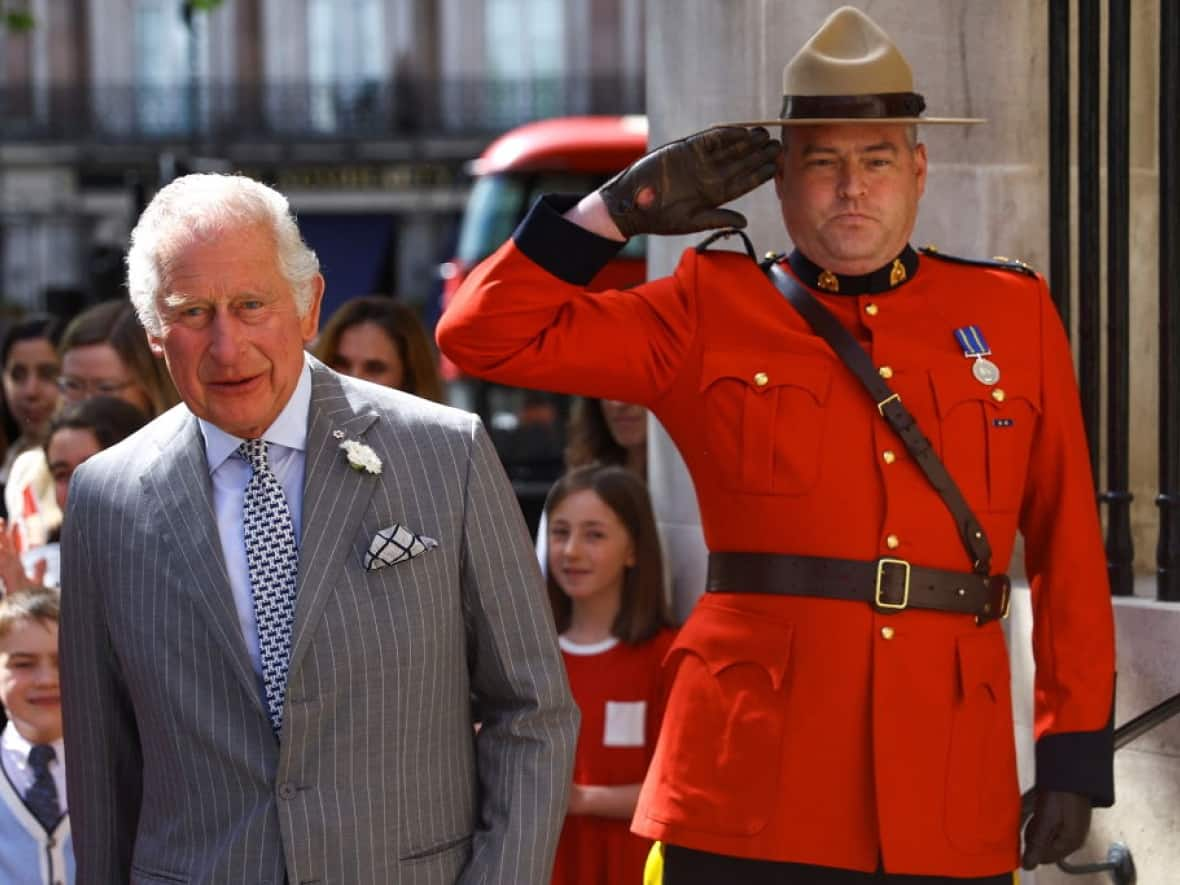
Nicholas Kaizer says he knows a few people who are "quite keen" on the monarchy and are looking at King Charles's coronation coming up on Saturday as a big event.
And the 29-year-old Halifax teacher will be following the coronation, too, curious in particular about how a ceremony steeped in 1,000 years of history might be modernized.
But Kaizer thinks most Canadians his age don't have such an interest in the monarchy.
"It's not even that most are anti-monarchy inherently. It's that they aren't really aware of it either way," Kaizer said in a recent interview.
Across Canada, recent polling suggests those with a keen interest in watching as King Charles is crowned in Westminster Abbey in London will be a minority.
While 59 per cent of those who responded to a survey by the Angus Reid Institute said they'll pay some attention to the coronation, only nine per cent said they're really looking forward to it. One in five (20 per cent) said they might tune in for some of it, while 29 per cent said they may read about it, but really aren't that interested.
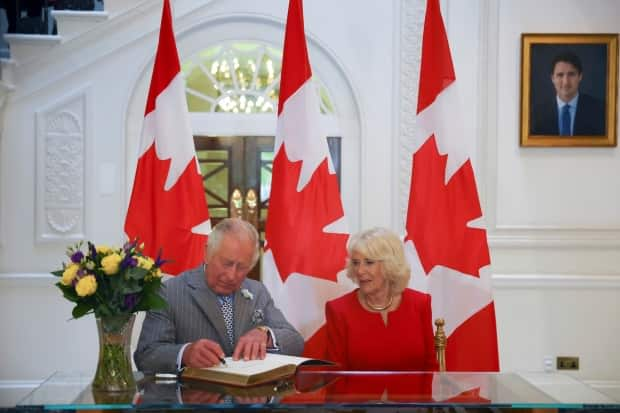
Still, there is a sense among some observers that the coronation may in its own way spark further debate and discussion about the institution of the monarchy, and the Crown in Canada.
"What I see in it is an opportunity to reflect about the institution," Barbara Messamore, a history professor at the University of the Fraser Valley in Abbotsford, B.C., said in an interview.
"When we see these rituals that stretch back 1,000 years, we realize that this is something more important than whether or not Charles has had a 10 per cent drop in his approval ratings in the polls," she said.
"But I do think it's a good thing to scrutinize. I don't think there's anything wrong with asking the questions about whether the institution is suitable to Canada."
It gets people talking
Messamore, who is also vice-president and a fellow of the Institute for the Study of the Crown in Canada, thinks it stands up "pretty well" to the scrutiny.
"People come from all over the world to live in Canada and we've had the constitution that's evolved organically over time and it works."
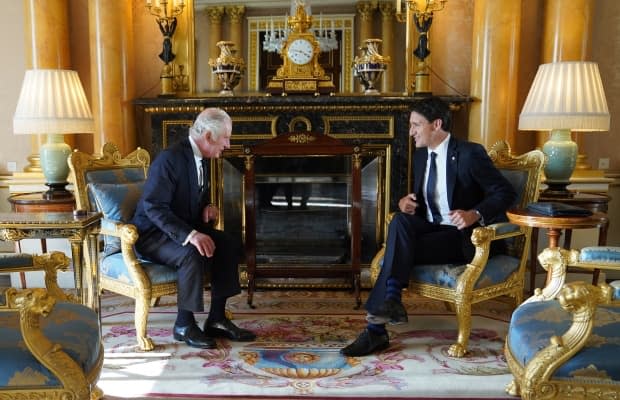
Others also welcome the scrutiny, but have a different view.
"Whenever there are important events where the royals are taking part, whether it's a royal visit, in this case, the coronation — even Victoria Day is one time of the year when Canadians actually stop to think about the monarchy," said Tom Freda, director and co-founder of Citizens for a Canadian Republic, in an interview.
"But the other 364 days of the year, it's not something that's a burning issue."
That's why, Freda said, his group, which advocates for a democratically selected head of state who lives in Canada, thinks it great that the coronation gets people talking.
"When people think about the monarchy, that's when they think that it's something that's totally ridiculous in 2023 to have a head of state live on another continent and represent our colonial past … our stagnant colonial past, not our bright future."
Coins and stamps and oaths
While many Canadians may not spend a lot of time thinking about the coronation or the monarchy in general, it remains a constant in the fabric of the country.
New Canadians will swear allegiance to the King, as well as politicians, members of the armed forces and police officers. Such oaths have prompted some debate. The Quebec legislature has adopted a law making the oath to the monarch optional for elected members, although constitutional scholars have differed on whether the legislature has the power to do that.
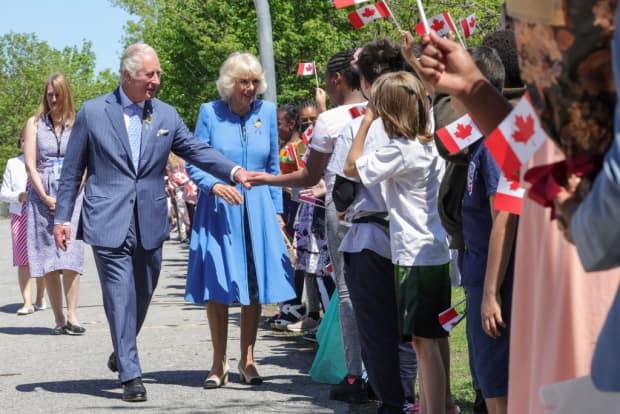
In a more visual reminder that Charles is King of Canada, the first definitive stamp of his reign will be unveiled by Canada Post in Ottawa on Saturday.
But there has been no official word on when or if an image of Charles will appear on coins or bank notes used as legal tender.
"I suspect we will not see the King's face on the new Canadian $20 bills," David Johnson, a political science professor at Cape Breton University in Nova Scotia, said via email.
"That honour will likely go to a rotating number of eminent and historic Canadians. [Charles's] head will likely appear, though, on our coinage. This is a tribute to the Crown dating back centuries."
Johnson expects there will be all sorts of commentary over the coronation weekend that it is time for Canada to move away from the monarchy.
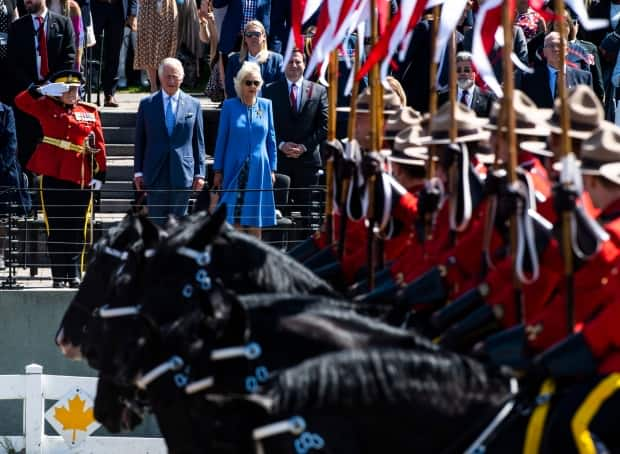
"Such comments are the easy part of that equation. It's easy to complain about the monarchy and to say we need something different. But it's hard to make that change, requiring a constitutional amendment needing the support of the federal government and all 10 provinces."
Freda sees it differently.
"All we really lack in this country is imagination. We haven't looked at how this can be done. If we want to do it, we can do it."
The political question
Whether that happens, however, becomes a political question.
And when Prime Minister Justin Trudeau was asked last week whether it's time for Canada to hold a referendum on whether to sever ties with the British monarchy, he said he believes Canadians are focused on bigger issues.
WATCH | Prime Minister Justin Trudeau on speaking with the King:
Sam Routley, a PhD candidate in the department of political science at Western University in London, Ont., said the conversations about how Canada's political community should operate have always been around.
"They've never ended from since we started to think about what does Canada look like outside of Britain. How does Quebec fit in? How do Indigenous people fit in? Should we change the electoral system?" Routley said.
"It's going to be talked about … and it's going to get replaced by some sort of other salient political issue. Because there's always one that comes up."
Kaizer, for his part, sees that the coronation could give politicians, the Governor General and the lieutenant-governors an opportunity to talk about their roles in the political system.
WATCH | Getting ready for a coronation viewing party in New Brunswick:
"I mean, even just having the prime minister talk about … the Queen, the King, does kind of remind people, by the way … there is this other figure in the system, this head of state and … it's a real part of the process," he said.
"The Governor General, lieutenant-governors taking the time to hold public events, ceremonies accompanying the coronation, does give Canadians a chance to kind of reach out and to learn about, to grapple with and sort of engage with … the Crown's role in our system."


